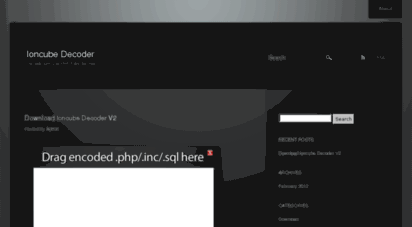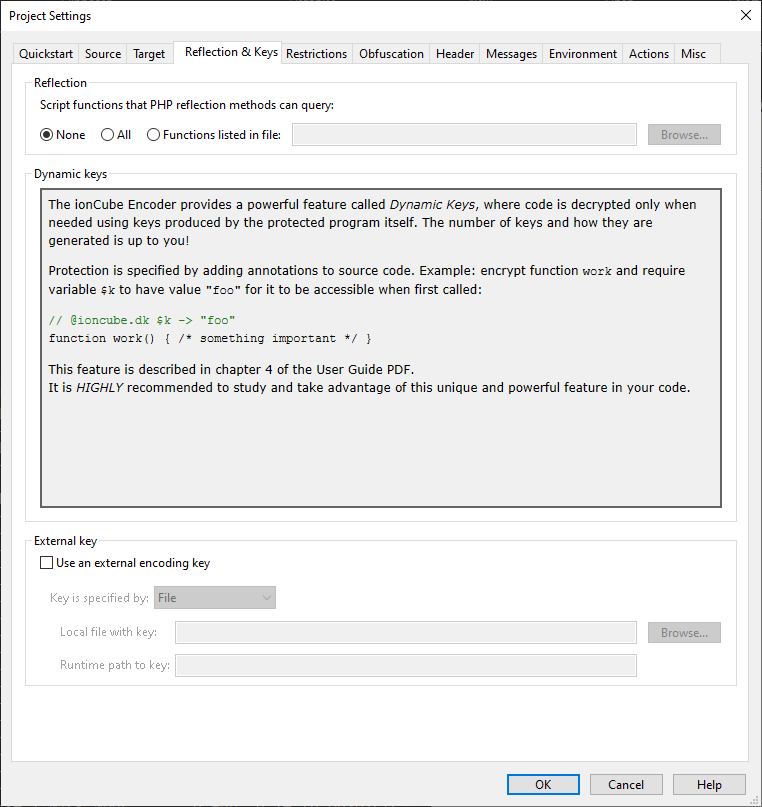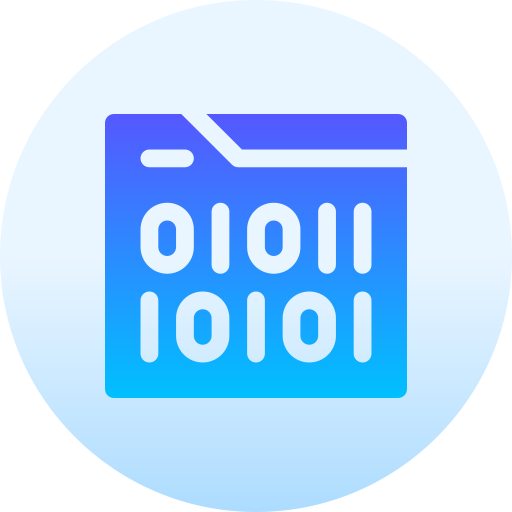
- #Free ioncube decoder for free#
- #Free ioncube decoder how to#
- #Free ioncube decoder manual#
- #Free ioncube decoder full#
- #Free ioncube decoder software#
If you’re on macOS, or Linux, operating systems then the built-in terminal will be fine for SSH access. If you want to use SSH keys instead of entering the username/password combination each time you login then take a look at this comprehensive guide for more information. This method is generally considered a more secure way to connect via SSH. You can also connect to your remote server using SSH keys. Your host will be able to help if you can’t find the information you’re looking for. Usually, this information can be found in your server cPanel or dashboard like MyKinsta. It’s a good idea to look up this information and make a note of it ahead of time. To open a new SSH connection you’ll need to have the following information to hand, which has to be entered every time you log in: This has become the standard method to interact with a server via the command line and we’ll make extensive during the installation process of the ionCube loader PHP extension.

Download and Extract the ionCube Loader PHP Extension.This process may vary slightly depending on your exact server setup but as long as you’re running a Linux-based server, then the differences should be minimal.ĭuring the installation process we’ll be covering each of the following steps in detail: There’s a specific set of steps required to complete the installation of ionCube loader manually on your server.
#Free ioncube decoder full#
Make sure you have full SSH access and are comfortable executing terminal commands.
#Free ioncube decoder how to#
If you’re not a Kinsta client, we’ll walk you through below how to manually install ionCube loader on a VPS. ionCube is free for Kinsta customers and can be installed on any plan. At this time, ionCube loader can only be enabled on sites using PHP 7.3 or 7.4 (ionCube is not supported on PHP 8.0 at this time). To enable ionCube loader, go to Sites > Tools > ionCube Loader, and press the “Enable” button. If you’re a Kinsta customer, you can enable ionCube loader in MyKinsta. Click on the links for more detailed information about each command. Understanding what these terminal commands do and how to use them will make the ionCube loader installation process much easier.
#Free ioncube decoder manual#
In order to complete the manual installation of ionCube loader it’s a good idea to first be comfortable with common terminal commands. If you are still using HHVM and need to encrypt PHP files with ionCube then you’ll have to switch to a more standard PHP engine that supports ionCube.

So this is only relevant if you’re using an older version of HHVM. However, this is mostly a moot point since HHVM ended support for PHP as of version v3.30. Just as a side note if you’re using HHVM (HipHop Virtual Machine) to process PHP then you need to be aware that ionCube loader doesn’t support HHVM. If you’re not sure about what version you need to download and install then don’t worry we’ll be covering this in detail shortly. Once downloaded you’ll need to install the version of ionCube loader that matches the PHP version running on your server as each available download contains multiple versions of the ionCube loader for all the different versions of PHP. There are various different versions of ionCube loader available, each one designed for a specific system (Linux, Windows, macOS etc.), and 32-bit or 64-bit architectures.
#Free ioncube decoder for free#
There’s also an online version of the encoder available which includes support for encrypting PHP code for free for testing purposes (more on this below).Īs for the ionCube loader, this is free for anyone to download and install on their server.

To encode PHP files you first need to purchase the ionCube encoder.
#Free ioncube decoder software#
If a PHP application contains proprietary code/algorithms, or software licensing features are required, then using ionCube is an ideal solution to protect your source code. First released in 2002, it’s a PHP extension that decrypts (previously encrypted) code on-the-fly and prepares it for execution along with the rest of the PHP application.


 0 kommentar(er)
0 kommentar(er)
